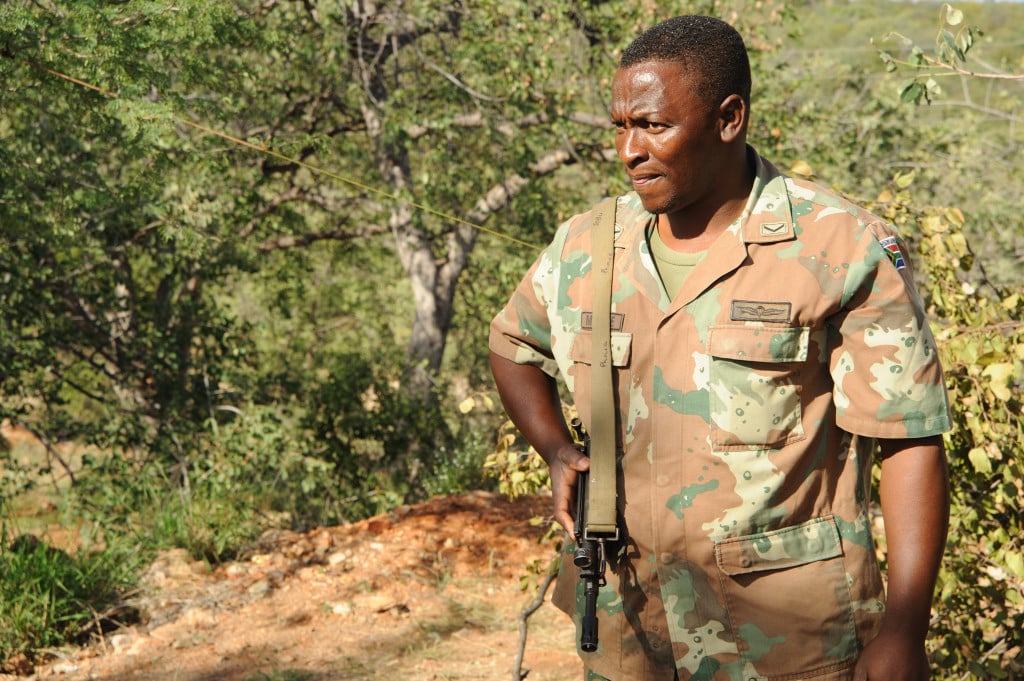The deployment comes as rebel groups - acting together under the Séléka coalition - make rapid territorial gains in CAR. Since December 2012, rebels have seized key towns and mining areas in the absence of any significant resistance from CAR’s national army. According to reports, they are poised just outside the capital, Bangui.
The rebels’ gains have been accompanied by reports of widespread looting and violence among a poor and vulnerable population, creating fears of a burgeoning humanitarian crisis.
But South Africa’s troop deployment was “coincidental to the context”, South African National Defence Force (SANDF) spokesperson Siphiwe Dlamini told IRIN. He said the soldiers’ purpose is to train CAR’s defence forces rather than engage rebel fighters.
Military cooperation agreement
South African presidential spokesperson Mac Maharaj said in a statement on 6 January that President Jacob Zuma had “authorized” the deployment of 400 soldiers between 2 January 2013 and 31 March 2018, as part of a military cooperation agreement. The authorization means the South African force could be doubled at short notice, without any procedural delays.
| Read more |
After the signing of the military cooperation agreement - and before the recent deployment - the numbers of SANDF personnel had fluctuated by between 20 and 46 soldiers, Dlamini said.
He declined to comment on any operational or equipment details, but said that according to rules of engagement, South African troops could act in self-defence and also “protect property we [ South Africa] have there.”
In February 2011, the South African government said, in a written reply to an opposition party parliamentary question, “South Africa’s involvement in the security of the Central African Republic followed President Francois Bozize’s request to South Africa to assist the Central African Republic’s Defence Force to upgrade their military capabilities.” A SANDF special forces unit was also provided for “VIP protection to President Bozize.”
Bolstering military presence
A host of other countries are also bolstering their military presence in CAR after the rebels’ recent successes.
Ugandan troops, with the support of US special forces, are operating in the country in pursuit of Lord’s Resistance Army (LRA) leader Joseph Kony. About 100 US special forces have been advising and coordinating the fight against Kony for more than a year, operating in CAR, the Democratic Republic of Congo (DRC), South Sudan and Uganda; the majority are thought to be in CAR. US President Barrack Obama has reportedly ordered an additional “standby security force” of 50 troops to CAR owing to the “deteriorating security situation”.
About 500 troops from Economic Community of Central African States - the majority of them from neighbouring Chad - are also in the country. Chad’s government has reportedly pledged a further 2,000 troops to support Bozize’s government. Bozize came to power in a 2003 coup supported by Chad’s President Idriss Deby; he has been elected twice since, although the 2011 poll was dismissed by opposition parties as fraudulent.
However, it was France’s recent move to boost its troops in CAR from 250 to 600 that may have provoked South Africa’s increase in its own military presence, David Zoumenou, a senior conflict analyst at the Pretoria-based Institute for Security Studies (ISS), told IRIN.
Since CAR achieved its independence from France in 1960, the former colonial power has maintained an almost continuous military presence in the country. France’s habit of stationing troops in its former colonies has always been a contentious issue for the African Union (AU) and its predecessor, the Organisation of African Unity (OAU).
Diplomatic wars
Zoumenou said, “We are asking why South Africa has deployed so many troops [to CAR].” It can been viewed as “a new battlefield between France and South Africa”.
South Africa, the continent’s powerhouse, has championed the AU’s mantra of “African solutions to African problems,” and is increasingly becoming involved in Francophone Africa, Zoumenou said. It is an open secret that tensions exist between France and South Africa over how to deal with Madagascar’s nearly four-year-old political crisis.
South Africa’s troop deployment to CAR can also been seen as a new foreign policy direction for the country, whose focus on the continent is changing from the human-rights-based agenda that held sway under former presidents Nelson Mandela and Thabo Mbeki towards strategic interests, such as mineral concessions and markets for South Africa’s arms industry.
But there are drawbacks to South Africa’s use of military influence - particularly capacity issues, according to Zoumenou. The country is “overstretched” by its commitments to the continent in AU and UN missions, and it is handicapped by its force design, he said.
go/rz
This article was produced by IRIN News while it was part of the United Nations Office for the Coordination of Humanitarian Affairs. Please send queries on copyright or liability to the UN. For more information: https://shop.un.org/rights-permissions




